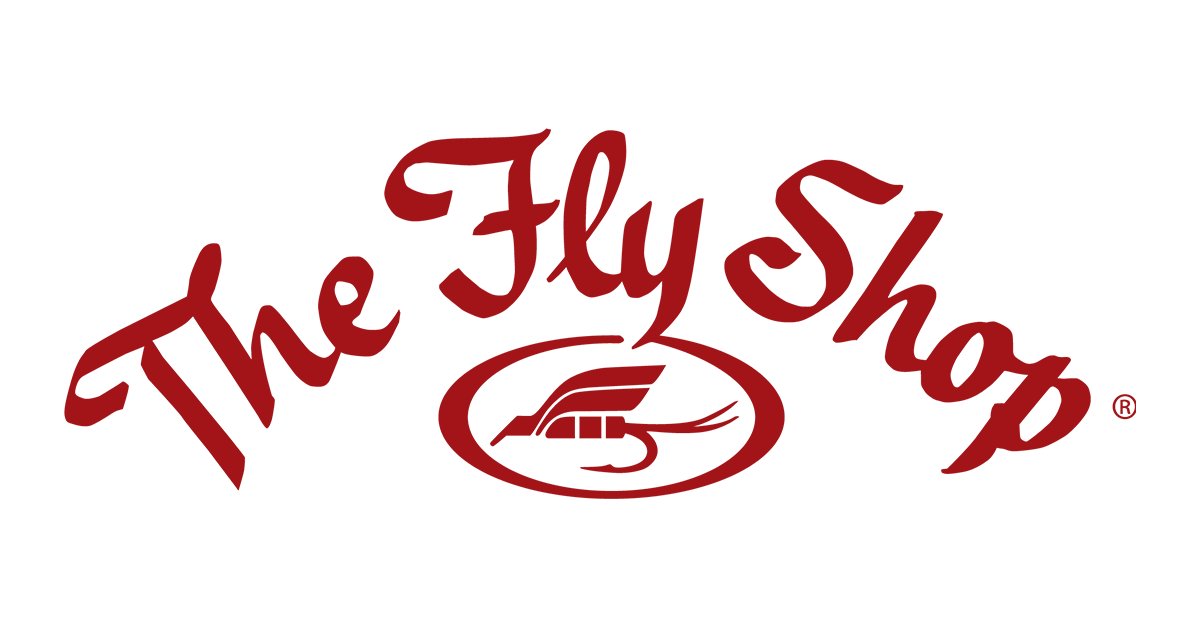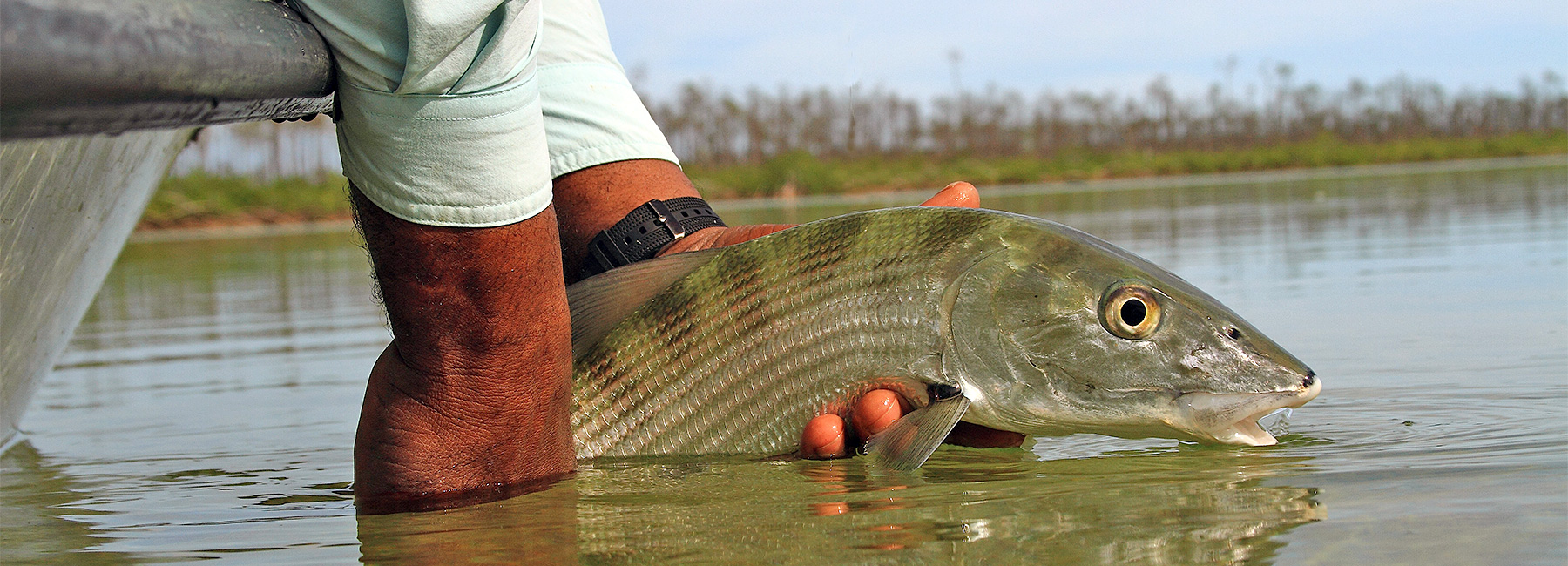GPS Coordinates: 26°35’44.97″N 78°26’07.13″W
Trip Questionnaire: Please click on the link below. This will take you an electronic questionnaire form that we ask you to complete and submit to The Fly Shop®. Please be sure to click the “Submit” button at the end of the form. The information provided will help us — and the outfitter best coordinate your trip.
THANK YOU! CLICK HERE
Getting to North Riding Point Club
Freeport is the second largest airport in the Bahamas, and there are numerous daily connecting flights into Freeport through Nassau, Orlando, Atlanta, Ft. Lauderdale, West Palm Beach, and more. Part of the Club’s attraction is the ease in scheduling any one of the frequent flights to Freeport. It’s best to schedule your flight to arrive in the early afternoon, and a morning departure. After collecting your luggage in the small, modern airport, you will proceed quickly through customs and on to the Club.
After exiting the Bahamas customs area, a porter will greet you. Tell them that you are going to North Riding Point Club and they will point you in the direction of the driver. The driver will be wearing an NRPC hat and shirt with the NRPC logo on the breast pocket. It is a short, twenty-minute drive to the Club. Airport transfers are included in your package.
The hustle and bustle of Freeport disappears during the short ride to North Riding Point where the lovely lodge blends comfortably with the rural, “out island” countryside. You’ll arrive at the lodge before dinner in time for a stroll on the beach, a swim in the pool, or cocktails on the porch.
Please make your flight accommodations as soon as possible to secure seats and the best fare. We recommend giving Alicia at Holdy Tours a call for help with flight information and fares at 1-800-446-1111. She books the majority of the travel for The Fly Shop’s travel staff, and many other anglers traveling to all parts of the world.
Typical Fishing Day at North Riding Point Club:
Your coffee is available in your room, and the front deck overlooking the water is the perfect place to start the morning. Breakfast is served in the dining room, and the buffet includes yogurt, granola, fresh fruit, coffee, fruit juices, with eggs and meat to order. The guides are waiting after breakfast to load their skiffs with your gear, ready to trailer to one of the several ramps on the island. Driving time to the launch sites vary from fifteen to thirty minutes, and runs to the flats are typically 10 to 20 minutes. The flats on the north shore of Grand Bahama offer opportunities to fish for some of the largest bonefish in the Bahamas, many exceeding the ten pound mark. There are the occasional shots at permit, tarpon, barracuda, jacks, and sharks, and we recommend you bring the appropriate tackle. Rigging a few rods and being ready for permit, bonefish and other species is the way to go. The Club’s guides are some of the most competent, experienced professionals in the Bahamas
Lunch is generally shared aboard your skiff, prepared by order. They have specialty sandwiches available, cold drinks and sides. After returning to the Club, a swim in the pool or at the beach is in order. Shortly, appetizers and cocktails are waiting in the dining room, and a fabulous dinner focused on fresh seafood and prime meat is ready. The food is first class, and you will not go away hungry.
Visa & Documents:
A valid passport is required for all travelers, and must be valid for six months beyond the arrival date. All travelers must have return or continuing tickets to pass through customs. A visa is not required for Americans, Canadians or most European countries. Residents of other countries should contact the Bahamian embassy in their country to double check that a visa is not required.
You will complete an immigration card upon arrival. It will be checked at your first point of entry and a copy will be given to you. Be careful not to lose this copy as it must be given to Immigration upon departure. For charter flights only, there is a departure tax payable at the airport upon departure; the tax is $25 for most points of departure.
Contact Information
Should any problems occur during your travel, including significant flight delays please be sure to have the following emergency contact information with you. Please feel free to contact the lodge or The Fly Shop® directly.
North Riding Point Club
Paul Adams, Manager | (242) 727-4250 | paul@nrpcbonefishing.com
The Fly Shop®
(800) 669-3474 | (530) 222-3555 | travel@theflyshop.com
U.S. Embassy, Nassau
(242) 322-1181 | emergency after hours telephone (242) 357-7004
General Information
Electrical:
The electrical outlets are AC 110 volts (same as the U.S.) and most appliances will work fine. Make sure that you have plenty of spare batteries for cameras and other small appliances, as the cost for replacements in the Bahamas is high.
Insects:
Mosquitoes and “doctor flies” in the Bahamas are prominent during the rainy season, from April through September. We recommend earing long pants and long sleeves while fishing and insect repellent will deter these bugs.
Gratuities:
Gratuities come in two forms: daily tips for guides at the end of each day, and a single tip for the lodge staff at the end of your stay. The economy is primarily cash-based, so the preferred method for tipping is in cash. US dollars and Bahamian currency are interchangeable on the island, and either works fine.
Guide Gratuities: Guide tips average $100 per boat per day. Tipping for guides can be done at the dock each day. It’s helpful to be prepared, have cash handy and if possible to discuss tipping with your fishing partner before reaching the dock. When preparing for your trip, it’s helpful to come with a sufficient amount of cash to cover tipping each day, and to allow for the possibility of an exceptional tip for an exceptional day.
Staff Gratuities:
Tips for the staff are collected once at the end of your stay, and are pooled and divided among the entire lodge staff, including the cooks and housekeeper. Lodge staff tips average $30 per angler per day.
Alcohol:
All beverages, wine & spirits are included in the package. Guests are welcome to bring along any additional alcohol or specific brands that they prefer.
Fishing at North Riding Point Club:
North Riding Point Club is deluxe by any standards, but the emphasis remains focused on the outstanding fishing, superb guides, state of the art skiffs, and miles upon miles picture-perfect flats loaded with trophy bonefish. The guides are all experienced, seasoned professionals who understand the intricacies of Bahamian bonefishing. The majority of the fishing is done from the boat, but wading opportunities exist if you prefer. The Hell’s Bay Marquesa skiffs are powered by 90hp Yamaha outboards, have padded seats, a leaning bar on the casting platform, dry storage lockers, and communication is by cell phone. The Club’s location offers access to a huge expanse of flats on the north side of Grand Bahama Island and outer cays which harbors incredible numbers of trophy bonefish.
Weather:
Cooled by the prevailing south-easterly trade winds in the summer and warmed by the surrounding waters and the Gulf Stream in the cooler months, Grand Bahama is rarely uncomfortably hot or cold…..Although similar in latitude to Palm Beach, Florida, the winter temperatures average 10° (F) warmer than Florida and the summer highs are generally somewhat lower than those found on similar Florida latitudes due to the moderating effects of the surrounding waters. The average daily highs and lows rarely differ by more than 12 degrees (F), with monthly rainfall averaging about 2 inches in the winter and 6 inches in the summer, primarily in the ‘20-minutes-and-they’re-gone’ afternoon showers.
Non-Angler Options:
North Riding Point Club is the perfect destination to take a non-angler, with a beautiful beach right in front of your private cabana. A driver is always available for a ride into Freeport, which offers endless activities including golf, a casino, restaurants, shopping, swimming with dolphins, horseback riding, and scuba trips.
Personal Gear
You’ll need an assortment of personal gear for your days on the flats, and a boat bag to keep them in.
Boat Bags:
Your boat bag will contain all your gear for the day in the boat and in transfer to and from the dock. Anglers often prefer some organizing dividers inside, and quick access pouches on the outside. It needs to be large enough to hold your rain jacket, fly boxes, sunscreen, extra leaders and tippet, camera, and back up glasses and fly lines. Fishpond, Patagonia and Simms offer quality boat bags.
Wading Pack:
You may be wading for hours and the boat will be just a spec on the horizon. Be sure to bring a wading pack to carry your flies, leaders, tippet, clippers, a water bottle, snack bars, camera, etc. The design is your choice, with sling, fanny and backpack the most common. Fishpond, Patagonia and Simms offer proven models in these designs.
Tools:
Pliers, hemostats, leader snips, hook sharpener, and release tool.
Rain Gear:
Lightweight and breathable is the best for warm climates. Bring your rain gear with you on the boat everyday no matter how clear it looks. Squalls pop up quickly and the boat ride can be wet.
Sunglasses:
Polarized glasses with amber or copper lenses are the most popular for flats fishing, and having an extra pair in your boat bag is a darn good idea.
Tackle & Equipment
Tackle & Equipment Lists by Species (click on links below):


